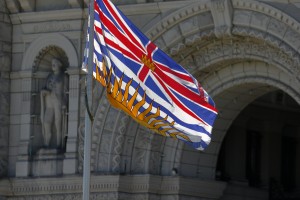Clean Energy Canada | B.C.’s climate roadmap sets the right course, but the clock is ticking
October 25, 2021

VANCOUVER — Merran Smith, executive director at Clean Energy Canada, made the following statement in response to the release of B.C.’s updated climate plan.
“The updated CleanBC roadmap is a concrete plan that would, for the first time, close B.C.’s emissions gap and hit our climate target—but only if implemented in a timely fashion.
“In particular, the new commitment to increase light-duty zero-emission vehicle sales to 26% by 2026, 90% by 2030 and 100% by 2035 positions B.C. among North American leaders. The plan would also develop medium- and heavy-duty vehicle requirements aligned with California’s, though specifics and timing will be crucial. Transportation has long been B.C.’s biggest source of pollution and remains a key focus area. Encouragingly, these updated vehicle targets reflect and build on B.C.’s success to date: more electric vehicles are now sold in the province than anywhere else in Canada.
“The roadmap also commits to capping oil and gas emissions and reducing these emissions over time. Details regarding how this will be achieved over the next six months will be critical as the sector is responsible for one-fifth of all emissions in the province. Regulations are essential for credibly demonstrating that this plan will meet its target.
“The B.C. economy of today is far removed from the economy of even a decade ago, and the last thing we need is an economic plan that doubles down on the status quo. With the release of today’s roadmap, B.C. has a once-in-a-generation opportunity to link its economic and climate goals ahead of the province’s forthcoming economic strategy.
“British Columbians felt the devastating impacts of climate change firsthand this summer, while jurisdictions around the world are transitioning to clean energy more quickly than ever. For the sake of protecting our communities and growing our economy, the new roadmap must become B.C.’s new reality imminently. Additionally, engaging with Indigenous peoples is critical to ensure success.
“We look forward to the provincial government’s implementation of this new plan—without delay. With 2030 fast approaching, the next six months will be crucial.”
KEY FACTS
- Transportation is B.C.’s biggest source of carbon emissions.
- 9.4% of new cars sold in B.C. in 2020 were electric, meaning B.C. has almost already met its 2025 zero-emission vehicle sales target of 10%.
- An average of 98% of B.C.’s electricity generation comes from clean or renewable resources (primarily hydroelectric generation).
- B.C.’s target requiring that 90% of passenger vehicle sales be zero-emissions in 2030 en route to 100% by 2035 is among the most ambitious in North America.
- The roadmap contains commitments in line with federal government policies, including a plan to meet or exceed the federal carbon pricing benchmark starting in 2023 and methane reduction targets aligned with federal commitments.
RESOURCES
Op-ed | Innovation can help ensure hydrogen becomes B.C.’s new natural gas (Business in Vancouver)
Op-ed | Western Canadians are ready for a new economic era (Calgary Herald)
Op-ed | Vancouver is leading the charge as Canada switches to electric vehicles by 2035 (Vancouver Sun)
Release | B.C.’s hydrogen strategy a first step in the global race to develop a clean hydrogen economy
Release | B.C. budget builds on its climate and economic plan, but could do more to seize net-zero opportunity
Release | Sectoral targets provide B.C. with a more detailed roadmap
Poll | Most British Columbians are interested in buying an electric vehicle
Poll | British Columbians prefer the province invest in clean energy over LNG